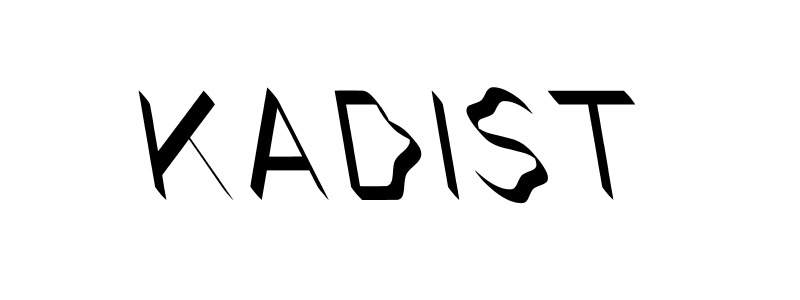La Town
2014 - Film & Video (Film & Video)
41:56 minutes
Cao Fei
Cao Fei’s video La Town, 2014 depicts a mythical metropolis that has been destroyed by unknown forces. Although the damage is obvious, as the camera navigates across the elaborate, handmade dioramas, the inhabitants of La Town carry on with their activities and the normality of everyday life pervades. As the film progresses, the latent chaos and violence begin to emanate from every corner of the miniature city: a bloody briefcase left on the ground, a kidnapping scene, an axe murderer on the loose, a ferocious man-eating octopus—all rendering the darkness of this new post-apocalyptic world order. La Town is ridden with traces of a consumer capitalist society—such as a well known German supermarket, a McDonald’s, flickering neon Shell signs, and a movie theater playing Gone with the Wind —deliberately coupled with references to different cultures and time periods in order to make it impossible to decipher a time and place. These cultural signifiers are a reflection of Fei’s own experience of the paradoxes brought by a regime that incubated a voracious hyper-capitalism in her native Guangzhou, also known as “the world’s factory.” The dialogue in the film is based on the 1957 movie Hiroshima Mon Amour directed by Alain Resnais, with a screenplay written by Marguerite Duras. In both films we hear an ambiguous and nonlinear conversation in French where a man and a woman contradict each other, extenuating the discrepancy between what is and isn’t real. As with her virtual works La Town uses the city to address Fei’s ongoing concerns: the inaccuracy of memory, forgetfulness, and a tacit existentialism as we search for a greater truth in different facets of everyday life.
Cao Fei is a celebrated multimedia artist known for works that focus on the interplay between real and fictional worlds. Working across photography, performance, video, and digital media, her practice vividly reflects the zeitgeist of the late twentieth century and the role that image production has played in shaping youth culture in a digital era. Influenced by an array of forms of global pop culture—from Cantonese Pop and Japanese anime to American hip-hop—a common thread in her practice is the merging of everyday life with new forms of technology as a means to unveil society’s unfulfilled desires. Her pivotal film Whose Utopia , for example, showcases assembly line workers in a factory in China as they act out their aspirations in a backdrop of industrial machinery. In another key body of work, RMB City, Fei created a virtual city through the platform Second Life —an online space that mimics ‘the real world’—as a vehicle to express ideas that relate to modernization, capitalism, and consumer culture. Through these constructed worlds, Fei presents a profound meditation on the boundaries between the real and the fantastic and the sense of alienation that drives new generations to increasingly experience the world behind the veneer of their Avatars. For Fei, the digital world is an expression of our human condition, and as such, an avenue to reflect on these emerging forms of social consciousness.
Colors:
Other related works, blended automatically

© » KADIST
Chen Shaoxiong
2007After engaging primarily with video and photography for more than a decade, Chen turned to painting to explore the issue of urban change and memories—both personal and collective...

© » KADIST
Pak Sheung Chuen
2008Pak created New York Public Library Projects (NYPLP) (2008) during a residency in New York, using public libraries as exhibition spaces and the books they house as raw materials...

© » KADIST
Eko Nugroho
2009Nugroho’s installations and performances have their roots in the shadow puppet rituals in Indonesia, particularly the Javanese Wayang tradition whose essence is in the representation of the shadows...

© » KADIST
Minouk Lim
2012The Possibility of the Half by Minouk Lim is a two-channel video projection that begins with a mirror image of a weeping woman kneeling on the ground...

© » KADIST
Xiaoyun Chen
2012The lengthy titles in Chen Xiaoyun’s work often appear as colophons to his photographs that invite the viewer to a process of self realization through contemplating the distance between word and image...

© » KADIST
Xiaoyun Chen
2006State Terrorism in the ultimate form of Pre-Raphaelite Brotherhood features a portrait of the artist wearing a zipped utilitarian jacket reminiscent of a worker’s uniform, with one arm behind his back as if forced to ingest a bundle of stick—a literal portrayal to the definition of fascism...

© » KADIST
Xiaoyun Chen
2006The image of rusted nails, nuts and bolts as shrapnel sandwiched between a fried Chicken burger highlights the contrast between decadence and destruction...

© » KADIST
Xiaoyun Chen
2014The central point of Vanishing Point is the most direct physiological reaction of the body to the environment...

© » KADIST
Amalia Pica
2013Memorial for intersections #2 (2013) is a minimalist, black metallic structure that contains the brightly colored translucent circles, triangles, rectangles, and squares that originally were presented in Pica’s performance work A ? B ? C (2013)...

© » KADIST
Du Zhenjun
2010The Tower of Babel is an installation of large-format photographs that forces the audience to occupy a central position through its monumental scale...

© » KADIST
Lin Yilin
Golden Bridge is part of “Golden Journey”, a series of site-specific performances and installations created during Lin’s residency at Kadist San Francisco...

© » KADIST
Du Zhenjun
2010The Tower of Babel is an installation of large-format photographs that forces the audience to occupy a central position through its monumental scale...








